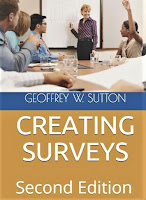READING EXPERIMENTAL RESEARCH:
QUESTIONS TO GUIDE YOUR
ANALYSIS
Geoffrey
W. Sutton, Ph.D.
Use
the following questions to help you read psychological experiments. With
experience, the questions should become a natural part of your analysis.
Who are the authors?
When was the study
published?
Where do the authors
write?
How do you contact the
lead author?
Which journal published
the article?
How
was the research funded?
What might the above situation suggest about the
research?
What was studied (variables)?
Why was it studied (need,
importance)?
What theory or theories
provide the context for the study?
What have previous
studies found?
What was expected
(purpose, hypotheses)?
Whom (describe the
participants)?
Age
Gender
Ethnicity
Other key variables
How did the authors
operationally define their variables?
How to (what procedures
were followed)?
How did they control for
possible confounding effects (internal validity)?
How were the data
analyzed?
What happened (what did
the authors discover in each experiment)?
So what (how are the
findings related to the theory and hypotheses)?
How far can we generalize
(limitations and external validity)?
What’s next (what do the
authors suggest we should no next)?
How
credible are their sources (relevance of the reference list)?
Learn more about research in Creating Surveys Buy on GOOGLE BOOKS
Please check out my website www.suttong.com
and see my books on AMAZON or GOOGLE
STORE
Also,
consider connecting with me on FACEBOOK Geoff W. Sutton
TWITTER @Geoff.W.Sutton
You can read many published articles at no charge:
Academia Geoff W Sutton ResearchGate
Geoffrey
W Sutton


Comments
Post a Comment